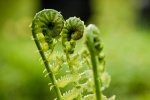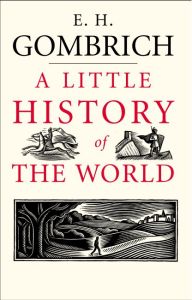Over the past month, I have attempted to read several books. I have not been successful; each book has been returned to my local library within days of being checked out. I wonder what this means. Am I loosing my skill at picking out a good read? Or is it the case that I’ve had my head stuck in too many books for too long a time? I’ve overloaded my brain with one story too many and things have got a bit mushy in that place I store my grey matter!
Then, something unusual happened. I could call it serendipitous, a lucky-find, or even suggest that the universe conspired to send something wonderful my way: yesterday, while sorting out the pile of magazines and unread books in my office, I came across a book a friend had given months ago (soon after Christmas, I think). I remembered how she raved about how good it was, how full of feeling it was and that she was sure I would love it; that I would be hooked by the end of the first sentence. Sure, I thought, that would be lovely but in actual fact I know from experience THAT type of book does not come around very often (the last time a book like that came into my life it was the unputdownable The Secret Life of Bees by Sue Monk Kidd), but I admired her enthusiasm and gratefully accepted the book. I had no notion of reading it for some time; I had more important books to get through, like the ones that had been especially ordered for me at the library. I thanked my friend and promised her that I would get to it soon.
I broke my promise. That is, I broke my promise, until yesterday. In my attempt to get a handle on office-clutter, I spotted the book peeping out at me from under my desk. The memory of my promise came ghosting after me, so I leaned in and pulled the book from the sloppy pile. I caught a glimpse of the red sticker, Costa Book Awards, Winner 2013: The Shock of the Fall.
Like a pro, I turned the book around in my hands and decided immediately that I liked the cover. Forgive me for the cliché; I know a book should not be judged by its cover, but that’s exactly what I did. I loved the tree, its branches, its lovely little delicate leaves and the little birds peppered amongst the branches, but what really got me was the little boy sitting beneath the tree, his legs tucked up into his waist, a book in his hand and a little bird flying from the book he was holding. It has a gentle cover I decided. I like gentle covers. O’K, I thought, I’ll give you a go gentle covered book. That was yesterday at approximately 10.30am – its 15.00 today, and I’m writing the review.
Told through the eyes of Matthew Holmes, a young schizophrenic boy, The Shock of the Fall  details Matthew’s struggles with not just his mental illness, but also the grief he feels in the aftermath of his brother Simon’s death.
details Matthew’s struggles with not just his mental illness, but also the grief he feels in the aftermath of his brother Simon’s death.
Since his death, Matthew’s life hasn’t been an easy one. He is home-schooled by an over-protective mother (whose own life is shattered by her eldest son’s death) and who throughout Matthew’s life has rushed him to doctors at the mere sign of a sniffle. At seventeen he leaves home to live with a friend Jacob, the now-19-year-old constantly struggles with the overwhelming grief, and guilt, at the way Simon died. His time as a care worker, helping look after Jacob’s disabled mother, further illustrates Matthew’s caring nature all the time while he struggles with an illness that is trying to define him as a person.
Matthew is someone you warm to instantly. He displays genuine guilt for what his parents and extended family go through with his mental illness. Matthew’s story made me laugh and cry. His wicked sense of humour, his honesty and his courage ensured I was with him every step of the way – almost as if I was in his very head. The story illustrates, how even in times of grief and sadness life still goes on, and how we must pick ourselves up and move into new chapters. It didn’t surprise me to discover that Nathan Filer is a mental health nurse: throughout the story there is insight and the knowledge of one who knows what the ordeal of mental illness means not just for the sufferers but also their family and friends.
This is a terrific story. It will stay with you for a long time. My hope is that Matthew, and all those who suffer similarly recover.



